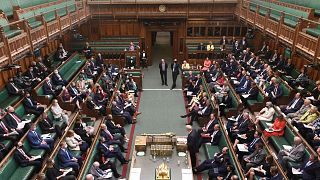Brazil
The second day of the impeachment trial of Brazil’s suspended president, Dilma Rousseff got underway on Friday with senators and jurists presenting their objections to elements in the process so far.
The impeachment trial which began on Thursday was given the green light by 48 senators who voted for the commencement of the proceedings. 18 senators voted No while 15 were undecided.
Dilma Rousseff who is expected to appear before the senate next week, is accused of seeking to hide public budget deficits through fiscal irregularities, and ordering additional loans without congressional approval.
Friday’s session is focusing on witnesses.
The defense has presented six witnesses including Rousseff’s planning minister Nelson Barbosa and former budget secretary Esther Dweck.
The prosecution witnesses include Julio Marcelo de Oliveira, a public official from the federal accountability office who made the allegations against Rousseff.
Rousseff’s lawyer has maintained that there is no dereliction of duty on the part of the suspended president, but the prosecution says there is clear evidence of fiscal manipulation by Rousseff
“Evidence shows that they used public banks to manipulate the accounts so that they could present a nice governmental financial position to the nation and the world,” said Lawyer, Janaina Paschoal, who co-authored the impeachment request.
“Any company faking their balance sheets would be closed and the related directors would be charged. Can a country involved in such a case not punish the related personnel?” she added.
Dilma Rousseff is expected to state her case before the senate on Monday August 29.
A final vote on whether to impeach her or not could be held on August 30 with a two-thirds majority of senators needed to remove her from office.
If she is impeached, Michel Temer would complete her term and Rousseff will be ineligible to stand for public office for eight years.












01:53
Ramaphosa suspends police minister amid corruption allegations
01:01
Trial of DRC's former Justice Minister Constant Mutamba postponed for two weeks
01:11
Legal complaint targets family of DRC's Félix Tshisekedi for looting
01:40
Kenya protests turn violent as court, activists demand justice for victims of police brutality
01:55
DR Congo: Joy in Goma as local man beatified by Pope Leo XIV
00:08
Vatican beatifies Congolese customs worker killed in 2007 for refusing bribe